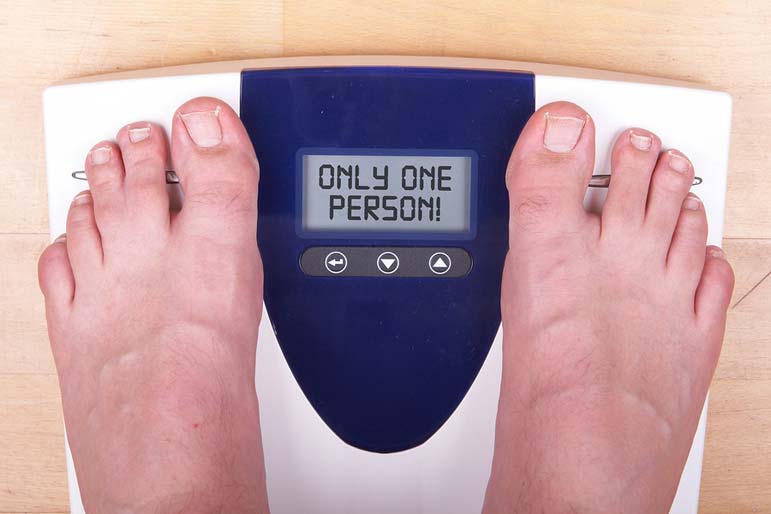
Losing weight is hard - and it's getting harder.
That's not an excuse, a group of researchers say, it's science. A study from York University published recently in the journal Obesity Research & Clinical Practice looked at dietary and exercise data for tens of thousands of Americans over the past four decades and found an unsettling but perhaps not so surprising trend: Even when he had the same diet and same activity level, a given adult in 2006 had a higher BMI than a counterpart of the same age in 1988.
In other words, "our study results suggest that if you are 25, you'd have to eat even less and exercise more than those older, to prevent gaining weight," Jennifer Kuk, a professor of kinesiology and health science at York and co-author of the paper, said in a statement. "Ultimately, maintaining a healthy body weight is now more challenging than ever."
Just how much more challenging? When comparing people with the same diets in 1971 and 2008, the more recent counterpart was on average 10 percent heavier. Looking at physical activity data, which was only available between 1988 and 2006, those born later were five percent heavier even if they exercised just as much people two decades earlier.
In a couple of charts, the paper complicated years of conventional wisdom on weight loss, which has stressed diet and exercise and blamed problems with both for increasing rates of obesity.
"Weight management is actually much more complex than just 'energy in' versus 'energy out,'" Kuk said in the statement. "That's similar to saying your investment account balance is simply your deposits subtracting your withdrawals and not accounting for all the other things that affect your balance like stock market fluctuations, bank fees or currency exchange rates."
In the case of weight, the "other things" affecting our balance might have to do with our environment - both outside our bodies and within them. Discussing her theories with the Atlantic and in her statement (the explanations are still only hypotheses), Kuk said that the world we live in today makes it harder to manage our weight than it was for people a generation ago.
The habits and lifestyles of today's world certainly have something to do with it, she said in the statement. We're sleeping less than we used to, according to Gallup - in 2013, 40 percent of Americans got less than seven hours of sleep per night. And a Carnegie Melon survey published in 2012 found that Americans were roughly 20 percent more stressed than a quarter of a century before.
Another factor is our exposure to certain kinds of chemicals that affect the endocrine system and metabolic processes, Kuk told the Atlantic. Plastic packaging, pesticides and substances known as persistent organic pollutants (mostly synthetic toxins that tend to bioaccumulate through the food web) may be impacting the way our bodies process food and store fat.
Increased use of prescription drugs may also play a role, Kuk told the Atlantic. According to the Centers for Disease Control, spending on prescription drugs doubled between 1999 and 2008, the last year of the York University study. Among adults (the subjects of the study), antidepressants were the most commonly used drug - and many, many, many studies have linked antidepressants to weight gain. But they're not the only culprits: Allergy medications, steroids and pain medications can also affect weight.
The tiniest and perhaps least intuitive factor is innate to each of us. It has to do with our "microbiomes," the brew of tiny organisms that live in our guts and play a role in processing food. Changes in our diets - we each ate roughly 20 pounds more meat per year in 2000 than we did 30 years earlier, according to the USDA, and we're consuming far more artificial sweeteners - are known to affect the bacteria in our bodies, which in turn have been proven to affect how we extract energy from our diets. And if an individual is obese, their microbiome might actually be making weight loss harder: in studies, average-sized mice implanted with gut bacteria from obese counterparts were found to gain weight.
Determining the role that each of those factors plays is a subject for further study, Kuk said. But the end result - a more difficult time managing weight - is the same.
It's a lesson to all of us, Kuk said, a reminder that our weight is not entirely in our control.
"There's a huge weight bias against people with obesity," Kuk told the Atlantic. "They're judged as lazy and self-indulgent. That's really not the case. If our research is correct, you need to eat even less and exercise even more," just to weigh what your parents did at your age.



 Contact The Editor
Contact The Editor
 Articles By This Author
Articles By This Author